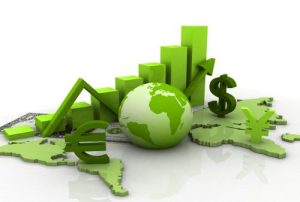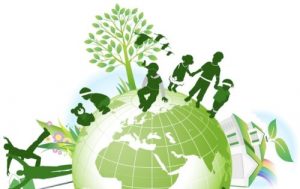Right in the water sector but Italy appears set back from the rest of Europe and with many inequities between north and south: the losses in networks are estimated between 30-40%, the aqueducts and sewage systems suffer from old age , 24% and 27% of the pipelines of the sewerage network has more than 50 years, and yet there is an 8% asbestos cement pipes, less than half of the treatment plants (45%) ensures at least secondary treatment of wastewater and on the front of quality, 2.2% of the samples turned out of the norm with a 9% on the islands. The conversion into the green water planet was the center of the “Water services and the challenge of the green economy: opportunities and challenges in the governance of water services in Italy”, organized by National Council Green Economy , in preparation of the States General of the Green Economy in 2016 in Rimini from 8 to 9 November that it was an opportunity to take stock of the innovations introduced with the institutional governance of water services in Italy , the impact of the referendum on the water and to discuss the opportunities and difficulties related to the development of the sector in line with the principles of the green economy.
 ” together to ensure the protection of this common good of fundamental interest public together with the availability of water in sufficient quantity and quality to meet the needs of citizens and use in the productive sectors – has observed the president of the Foundation for Sustainable Development, Edo Ronchi – it is necessary, put in place a system of actions and really effective tools for the protection and sustainable use of this resource with adequate investments and a coherent legislative framework that will allow you to start the field on the green economy road. A sector that is already facing and will face even more in the coming years the effects of climate change. “
” together to ensure the protection of this common good of fundamental interest public together with the availability of water in sufficient quantity and quality to meet the needs of citizens and use in the productive sectors – has observed the president of the Foundation for Sustainable Development, Edo Ronchi – it is necessary, put in place a system of actions and really effective tools for the protection and sustainable use of this resource with adequate investments and a coherent legislative framework that will allow you to start the field on the green economy road. A sector that is already facing and will face even more in the coming years the effects of climate change. “
In the document discussed at the seminar was stressed as some very useful actions to ensure sustainable water management are lagging behind, especially in some areas of the country. Particularly action for containment of losses in water systems, for reducing evasion and circumvention of the tariff, to ensure availability to all civil users even in times of drought, to strengthen the current trend of reduced consumption and for reuse of gray water and those purified, for the adjustment of supply infrastructure, treatment, collection and treatment with criteria of rationality and efficiency, for the progressive reduction of the number of managers, to ensure they are properly implemented management procedures for assessing and managing risk in the supply chain of the water intended for human consumption, with specific reference to large public-use infrastructure ( water safety plan ).
as for the investment needed to “upgrade” the national water infrastructure, which have been estimated at over 5 billion euro a year, the Authority in its latest report points out that in the years 2014-2017 planned investments amounted to about 5.8 billion, more than half concentrated in three regions, Lombardy, Lazio and Tuscany. Yet investing in the water sector could have not only do good for the environment, but also act as a catalyst for employment, according to the UN fact the workforce involved in the water sector in Europe is 600,000 units in the US each job created at the local level in the water sector involves the creation of 3.68 indirect jobs in the national economy work.
WATER AND AGRICULTURE
70% water taken in Italy is for agriculture. The new CAP promotes the sustainable use of water resources, in line with the economic and environmental principles contained in the Framework Directive on water. The paper presented at the seminar forward some practical proposals to promote the sustainable use of water resources in agriculture. Specifically identified in the river basin management plans, in consultation with the agricultural side, the quantitative status of surface and ground water bodies; consider that water use should be properly kept distinct from the assumptions of abuse or indiscriminate use of the resource and the use for employments “discretionary” both in terms of the assessment of potential costs on the instrument level; ensure that the charging place alongside complementary systems, such as the promotion of practices and tools aimed at saving water, reducing losses in the distribution or education campaigns and public information; use the funds and the funds available to implement water efficiency in agriculture, encouraging the spread of best technological innovations; take action on user contribution of Reclamation Consortia, still very unbalanced system, so that for example the total contribution from ANBI data, it appears that the north participates for 72%, 3% for the center and the south for 25%
NEW REGULATIONS
 the offline environment, Law 221/2015, introduced some innovations in the sense of solidarity in the management of water resources in particular the guarantee Fund of the water works to support investment; tariff averaging inter-sphere to compensate for the differences which do not depend on the elements of efficiency and social rate of the Integrated Water Service, a form of economic support for the difficult situations which according to the direction taken in the implementation decree should define the minimum subsistence amount necessary to meet the essential needs 50 liters per capita per day with the expectation of a corresponding to this minimum vital water bonus. An impact on the whole sector is also envisaged by the Procurement Code adopted recently. In addition, a decree of the Ministry of Environment last year has set guidelines for the application of the principle of recovery of environmental costs and of water resources in water services.
the offline environment, Law 221/2015, introduced some innovations in the sense of solidarity in the management of water resources in particular the guarantee Fund of the water works to support investment; tariff averaging inter-sphere to compensate for the differences which do not depend on the elements of efficiency and social rate of the Integrated Water Service, a form of economic support for the difficult situations which according to the direction taken in the implementation decree should define the minimum subsistence amount necessary to meet the essential needs 50 liters per capita per day with the expectation of a corresponding to this minimum vital water bonus. An impact on the whole sector is also envisaged by the Procurement Code adopted recently. In addition, a decree of the Ministry of Environment last year has set guidelines for the application of the principle of recovery of environmental costs and of water resources in water services.
Recently, the Chamber of Deputies examined a Parliamentary initiative of 2014 bill (which had endorsed a proposal for a popular law in 2007 and 2011) which proposed referendum among its objectives to enshrine the recognition of the right to water as a universal human right to be guaranteed to every citizen by establishing a minimum amount guaranteed through general taxation; protect the water resources as a common inalienable public good, to protection of future generations; classify the integrated water services as a local public service of general interest, not of economic importance; identify some sources of funding in support of ripubblicizzazione processes.
“The green economy – has concluded John Squires, a member of the working group Water Resources of the General Council of the Green economy – whatever the feelings and positions at stake, seems the only way out for this sector. “
No comments:
Post a Comment